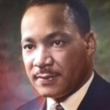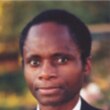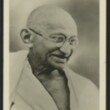Long Walk to Freedom: The Autobiography of Nelson Mandela
(Libby/OverDrive eBook, Kindle)
Available Platforms
Description
More Details
Similar Titles From NoveList
Similar Authors From NoveList
Published Reviews
Choice Review
Mandela's autobiography would be a significant publishing event even if, as a man and a leader, he had triumphed less signally and dramatically over lengthy incarceration, entrenched white domination, and decades of bitter racial conflict. His book is indeed a testament to those striking victories. But it is also inspirational, in the best sense: Mandela's struggle, his reflections on the complexities of that struggle, and the way in which he now judges his own acts and the acts of antagonistic Afrikaners, is deeply moving. He conveys with great immediacy and feeling how the idiocy of apartheid transformed a comparatively bookish, respectful, bourgeois young African lawyer into a popular leader, an insurgent strategist, and, ultimately, into a gifted statesman. Had Mandela's powerful printed words been absorbed by Afrikaners in the 1950s and '60s, apartheid itself could never have captured the hearts and minds of so many white South Africans. Every library will want this riveting and appealing book. Good photographs and an ample index. R. I. Rotberg; Harvard University
Booklist Review
Gr. 9^-12. Mandela tells the dramatic story of the long struggle against apartheid, his 27 years in prison, and his election as the first black president of a new, democratic South Africa.
Publisher's Weekly Review
Winner of the Nobel Peace Prize and the first democratically elected president of South Africa, Mandela began his autobiography during the course of his 27 years in prison. (Oct.) (c) Copyright PWxyz, LLC. All rights reserved
Library Journal Review
Mandela's ``long walk'' begins with his youth and moves up to his election as South Africa's president last spring. (c) Copyright 2010. Library Journals LLC, a wholly owned subsidiary of Media Source, Inc. No redistribution permitted.
Kirkus Book Review
In 1918 Nelson Mandela was born, the son of a tribal chief in the Xhosa nation. In 1994 has was elected the first black president of a South Africa newly free of apartheid. In the 76 intervening years, Mandela's path was the path of his pepole and his country: painful, obstacle-ridden, often seemingly impassable. Here the leader of black South Africans' fight for freedom details each step of that journey. He writes with respect and affection of the traditional culture in which he was raised, even of his ritual circumcision at the age of 16; and he describes with remarkable dispassion the events that aided his growing politicization, such as the failed miners' strike of 1946; his quest for dignity even while imprisoned on Robben Island; and the dramatic negotiations with President F.W. De Klerk that culminated in a peaceful revolution in South Africa. This memoir is remarkably free of polemics, self-pity, and self-aggrandizement. It is the work ofo a man who has led by action and example--a man who is one of the few genuine heroes we have.
Library Journal Reviews
Mandela ranges from his youth to the events leading up to this month's first multiracial elections in South Africa. Copyright 1994 Cahners Business Information.
Library Journal Reviews
Mandela's ``long walk'' begins with his youth and moves up to his election as South Africa's president last spring. Copyright 1994 Cahners Business Information.
Library Journal Reviews
This is an articulate, moving account of Mandela's life from his "country childhood" following his birth on July 18, 1918 to his inauguration as president of South Africa on May 10, 1994. Mandela traces the growth of his understanding of the oppression of the blacks of South Africa; his conviction that there was no alternative to armed struggle; his developing belief that all people, black and white, must be free for true freedom; and the effect that his commitment to overthrowing apartheid had on his family, who "paid a terrible price." Over a third of Mandela's memoir tells of his 27 years in prison, an account that could stand alone as a prison narrative. He ends his book with the conclusion that his "long walk" for freedom has just begun: "For to be free is not merely to cast off one's chains, but to live in a way that respects and enhances the freedom of others." Highly recommended for all collections. [Previewed in Prepub Alert, LJ 4/1/94.]-Maidel Cason, Univ. of Delaware Lib., Newark Copyright 1994 Cahners Business Information.
Publishers Weekly Reviews
Winner of the Nobel Peace Prize and the first democratically elected president of South Africa, Mandela began his autobiography during the course of his 27 years in prison. (Oct.) Copyright 1995 Cahners Business Information.
Publishers Weekly Reviews
This fluid memoir matches South African President Mandela's stately grace with wise reflection on his life and the freedom struggle that defined it. Mandela began this book in 1975, during his 27-year imprisonment. He has fleshed out a sweeping story that begins in the rural Transkei in 1918 and moves beyond, especially to Johannesburg, where he became politically active as one of only a few black African lawyers. As an African National Congress leader, this military novice helped launch an armed struggle against the intransigent apartheid government, then eloquently explained his political convictions when on trial in 1964 for sabotage. Perhaps the most powerful passages involve the Robben Island prison, where political prisoners formed a ``university'' and Mandela read books like War and Peace, resisting embitterment and finding decency even in callous Afrikaner jailers. Moved to a mainland prison in 1985, Mandela, unable to consult with exiled ANC leaders, initiated intricate negotiations with the government; the story fascinates. This book-perhaps out of diplomacy and haste-covers the period since Mandela's 1990 release with less nuance and candor than other recent accounts; still his belief in repairing his country inspires. Mandela's family life has involved much sadness: he was not permitted a contact visit with wife Winnie for 21 years, was separated from his two young children and split with Winnie after his release, although he supported her during her 1991 conviction for kidnapping (a sentence she is appealing). ``In South Africa,'' he notes, ``a man who tried to fulfill his duty to his people was inevitably ripped from his family and his home.'' Photos not seen by PW. (Dec.) Copyright 1994 Cahners Business Information.
Reviews from GoodReads
Citations
Mandela, N. (2008). Long Walk to Freedom: The Autobiography of Nelson Mandela . Little, Brown and Company.
Chicago / Turabian - Author Date Citation, 17th Edition (style guide)Mandela, Nelson. 2008. Long Walk to Freedom: The Autobiography of Nelson Mandela. Little, Brown and Company.
Chicago / Turabian - Humanities (Notes and Bibliography) Citation, 17th Edition (style guide)Mandela, Nelson. Long Walk to Freedom: The Autobiography of Nelson Mandela Little, Brown and Company, 2008.
Harvard Citation (style guide)Mandela, N. (2008). Long walk to freedom: the autobiography of nelson mandela. Little, Brown and Company.
MLA Citation, 9th Edition (style guide)Mandela, Nelson. Long Walk to Freedom: The Autobiography of Nelson Mandela Little, Brown and Company, 2008.
Copy Details
| Collection | Owned | Available | Number of Holds |
|---|---|---|---|
| Libby | 5 | 0 | 0 |



































